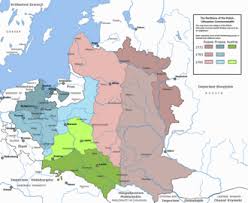Poland: Navigating Political Challenges and Social Changes

Introduction
Poland is currently at a pivotal point in its history characterized by significant social and political changes. As one of the largest nations in Central Europe, its decisions resonate widely, impacting not only the European Union but also global politics. Recent elections, ongoing debates over judicial reforms, and socio-economic challenges have put Poland in the spotlight, necessitating a closer examination of its current events and implications for the future.
Political Dynamics: The Recent Election
In the recent parliamentary elections held on October 15, 2023, Poland’s ruling Law and Justice Party (PiS) faced an unexpected challenge from the opposition, forming a broad coalition called the Civic Coalition. This coalition, which includes the centrist Civic Platform and smaller left-wing parties, won a narrow victory. The election turnout was recorded at an impressive 75%, reflecting the high stakes involved. The coalition’s platform focused on restoring democratic norms and addressing social issues, which resonated with many voters disillusioned by PiS’s controversial policies over the past eight years.
Judicial Reforms and Rule of Law
One of the focal points during the campaign was the controversial judicial reforms pushed by the PiS government, which have been criticized for undermining judicial independence. The European Union has consistently scrutinized Poland’s actions and threatened sanctions due to violations of rule-of-law principles. However, the new coalition government, led by Donald Tusk, plans to reverse many of these contentious reforms. This change is anticipated to restore Poland’s relationship with the EU and regain access to crucial funding, vital for economic recovery and development.
Socio-Economic Factors
On the socio-economic front, Poland continues to grapple with high inflation, which peaked at around 12% earlier this year. Rising living costs are compounding the challenges for Polish citizens, highlighting the urgency for government action. The new administration aims to introduce reforms aimed at improving the economic situation, including adjustments in tax policies and social welfare programs to alleviate the hardships faced by many households.
Conclusion
As Poland emerges from this recent electoral shift, the implications of these developments are profound. The new coalition’s commitment to restoring democratic norms and tackling pressing socio-economic issues could redefine Poland’s trajectory for years to come. Observers anticipate both challenges and opportunities as the government seeks to balance the demands of its citizens with the expectations of the European Union. For readers, keeping an eye on Poland during this transitional period is essential, as it reflects broader trends in European politics and governance.








